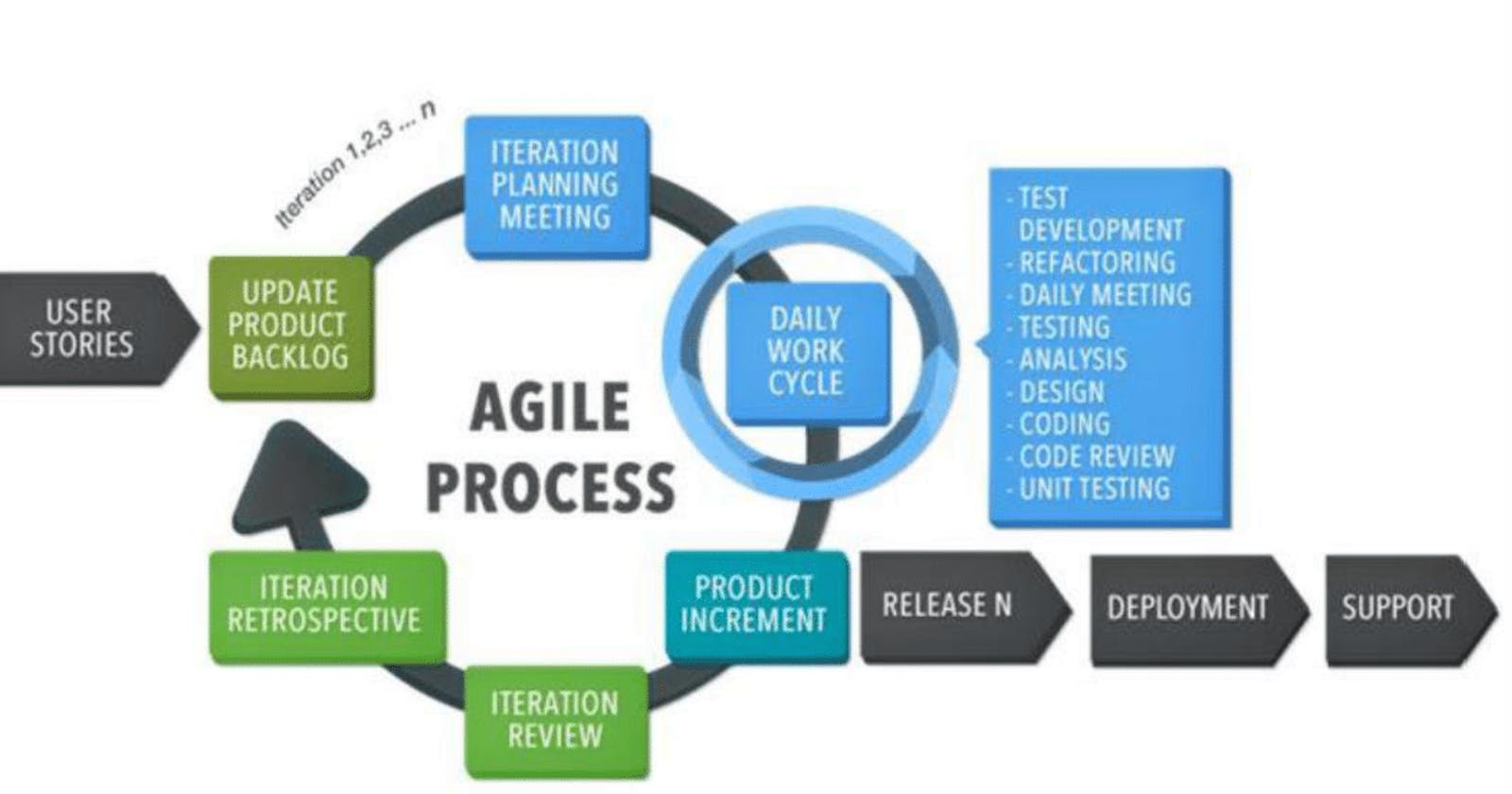AgileScrum-Blog#05 Team Facilitator
Scrum Master(SM) as Facilitator(FAC), Dealing with developers personal distress, Misunderstanding to describe SM as FAC
JahidApon (the Team Facilitator) has found Lagetha(a team member) of Team Alpha has been showing signs of great personal distress: snapping at colleagues, crying at work, having rough phone conversations. As the Team Facilitator, what JahidApon should you do?
- [ ] Give the team member space and time to deal with their personal issues.
- [ ] Tell the others on the team that their teammate needs some emotional support.
- [x] Notify the team member's manager of your observations and ask the manager for help.
- [ ] Ask the team member if they would like to talk about what might be going on with them personally.
1. Scrum Master As a Facilitator
1.1 What is a Facilitator?
“The purpose of human life is to serve, and to show compassion and the will to help others.” — Albert Schweitzer
Facilitator is Someone who helps a group of people understand their common objectives and assists them to plan how to achieve these objectives; in doing so, the facilitator remains ‘neutral’ meaning he/she doesn’t take a particular position in the discussion. In summary, Serving the team without being their servant;
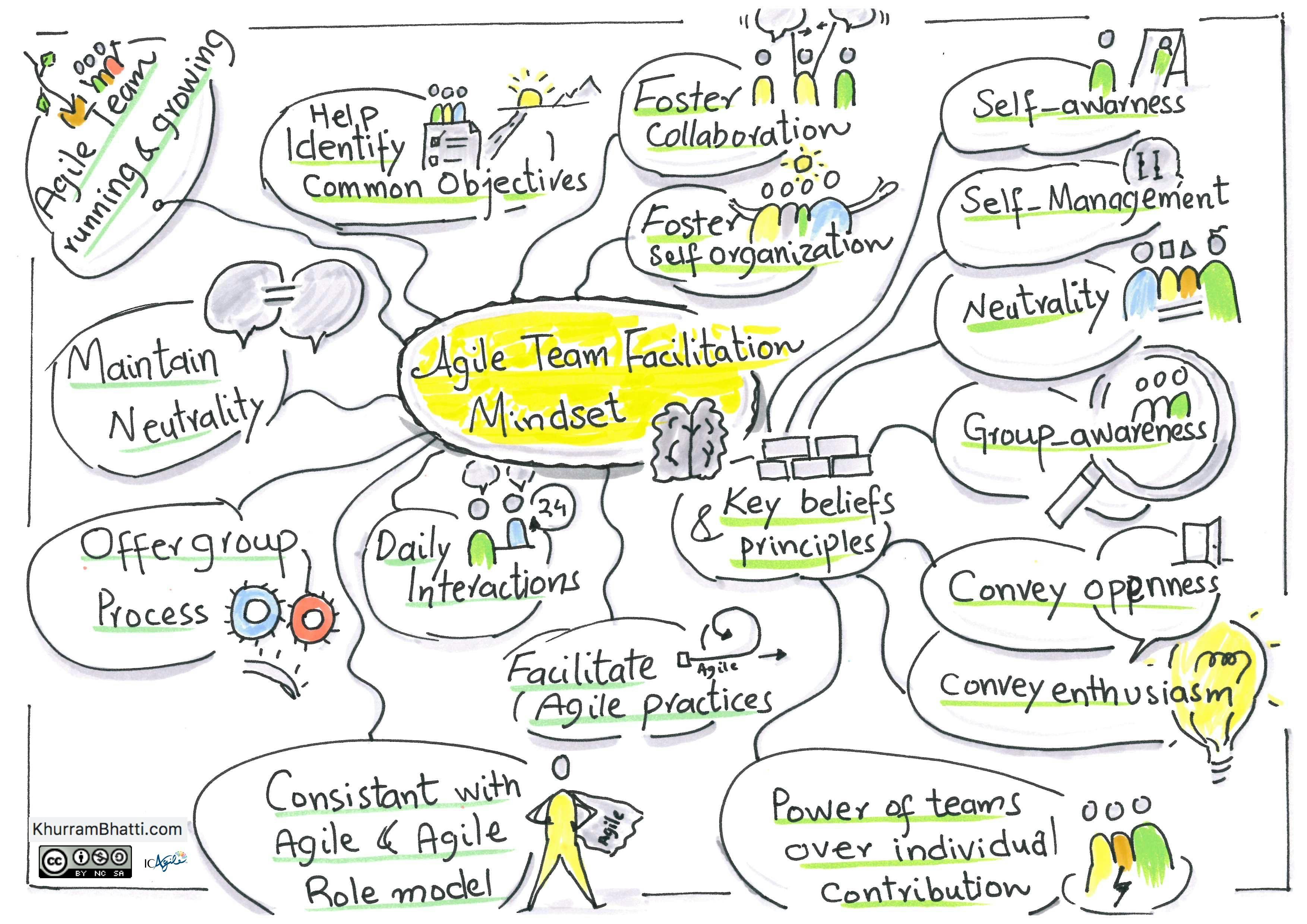
Key elements of this definition (and other available definitions) are:
- Help and enable others in achieving their objectives;
- Be ‘content neutral’, not taking sides;
- Support everyone to do their best thinking and practices;
- Promote collaboration and try to achieve synergy;
- Provide charismatic authority.
- a facilitator must promote synergy and collaboration
1.2 Misunderstanding to describe the Scrum Master as a facilitator
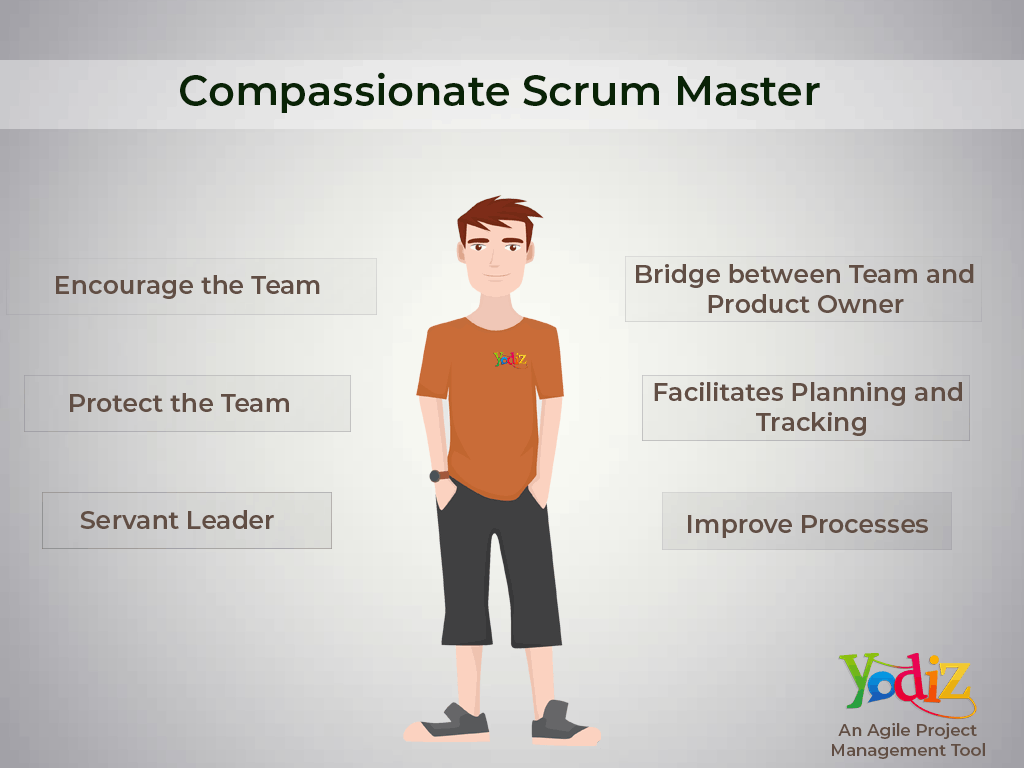
Most people will answer, "Scrum Master facilitates the Scrum events". Sure they will do it while ensuring:
- Sprint is time-boxed
- Daily Scrum
- Sprint Planning
- Sprint Review
Retrospective - is used as an event during which the team inspect and adapt their practices and processes to improve key processes and general issues that are impeding the team’s progress.
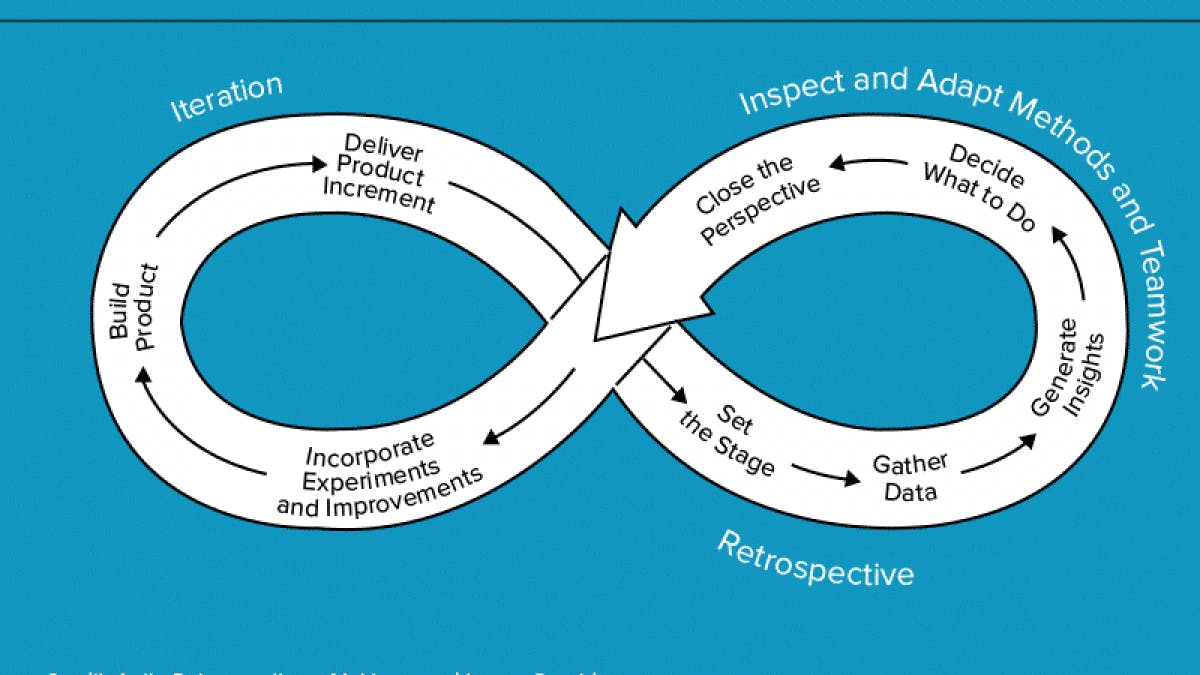
- The biggest misunderstanding is that facilitating the Scrum events is the only thing a Scrum Master should do as a facilitator. A great Scrum Master however understands that facilitation can be far more powerful…
1.2.1 How Facilitation within Scrum Framework was really meant
“A Scrum Master should facilitate by creating a “container” for the team to fill up with their ideas and innovations. The container, often a set of agenda questions or some other lightweight (and flexible) structure, gives the team just enough of a frame to stay on their purpose and promotes and environment for richer interaction, a place where fantastic ideas can be heard. The coach creates the container; the team creates the content.” - Lyssa Adkins, in her book ‘Coaching Agile Teams’
- Questions the Scrum Master may ask include:
- What did you accomplish yesterday?
- What will you accomplish today?
- Is anything holding you back?
1.3 Transitioning from Facilitator to Scrum Master
A facilitator uses techniques such as asking questions to help the team improve their ownership of the project outcome. If there are issues with collaboration, the facilitator has to ensure that everyone is on the same page and working in harmony.
So, the facilitator must help the team get to the root cause of any issue by asking probing questions. Facilitators help make things happen and help build strong teams. The same characteristics needed to be a successful facilitator are also used by elite Scrum Masters. Some of these qualities include:
- [x] Foresight
- [x] Collaboration
- [x] Empathy
- [x] Ethical use of power
- [x] Listening
- [x] Growth-mindedness
- [x] Community-mindedness
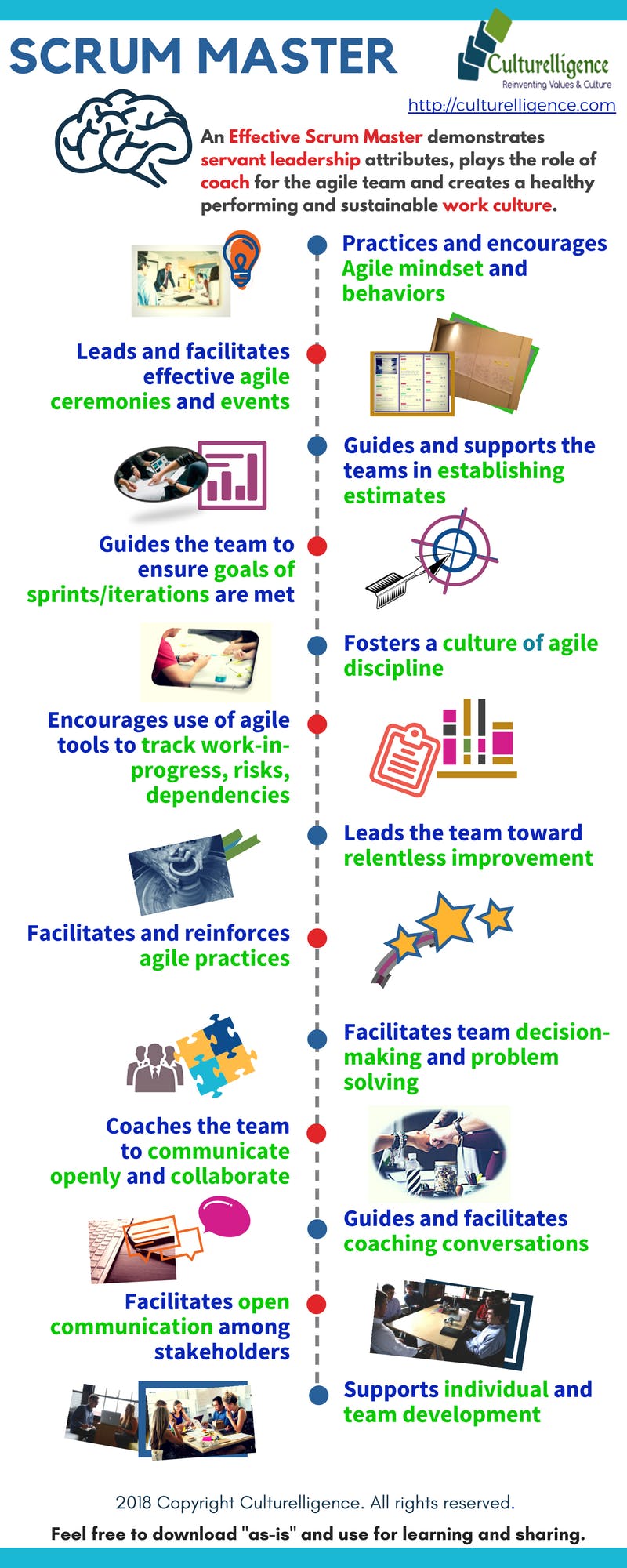
And, just as the facilitator helps the team to reach their own accountability, the Scrum Master must do the same.
- With accountability, everyone on the team is expected to contribute their fair share. If not, they are held accountable. In fact, everyone is expected to be a team player. Neither the facilitator nor the Scrum Master forces anyone to do anything; they simply help team members to do it themselves.
2. Solving Question through Elimination Strategy
... As Team Facilitator, what should JahidApon do to Lagetha?
- [ ] Give the team member space and time to deal with their personal issues. [S01: Could be a correct answer, So I am short listing it]
- [ ] Tell the others on the team that their teammate needs some emotional support. [S02: Never do it]
- [ ] Notify the team member's manager of your observations and ask the manager for help. [S03: Could be a correct answer, So I am short listing it]
- [ ] Ask the team member if they would like to talk about what might be going on with them personally. [S04: Absolutely not]
2.1 My Short Listed Answers
- [ ] Give the team member space and time to deal with their personal issues.[S02: Not good comparing to S01]
- [ ] Notify the team member's manager of your observations and ask the manager for help. [S01: This is the better approach then giving the team member a space to deal with his/her own personal issues ]
2.2 Final Answer
- [x] Notify the team member's manager of your observations and ask the manager for help. [S01: This is the better approach ]
3. Final Thought
A scrum master has to be a constant source of motivation for their teams because, in the end, it is the entire team’s effort to drive the project. A scrum master cannot be held accountable or blamed for unfavorable situations or the result of the sprint. Becoming a compassionate scrum master is not only practicing work processes. Rather creating and developing an empathetic mindset. This may seem overwhelming but given the dedication to learn and the drive to change, it is easy to learn all the relevant skills and become a humane and commiserate scrum master.
Elite Scrum Masters should act as a servant/leaders, a coach, and a facilitator.
They will know exactly how to change hats depending on the context and situation. It is through training, daily practice, and experience that you can reach the elite level and create a culture of thriving Scrum teams.
“To be successful a ScrumMaster will need to influence others both on the team and outside it.” — Mike Cohn
